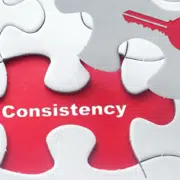Create Content That Matters
On Monday, my social media feeds were dominated with friends and celebrities sharing stories about the death of actor Luke Perry.
Perry, famous for playing Dylan McKay on the popular 1990s TV show “Beverly Hills, 90210,” had what was described as a “massive” stroke last week. With the heartthrob looks of James Dean and a mega star power, he was unforgettable for us Gen Xers and older Millennials who loved him. He even found a career resurgence recently on the show “Riverdale.”
Once the news of Perry’s death became more widespread, I noticed the conversation started to pivot – he was so young (52) to have had a stroke. I messaged a client who works with cardiologists and suggested some outreach about stroke education.
At Chartwell Agency, we’ve written about and continue to stress the importance of having a marketing and communication plan for your organization. The plan should be revisited frequently and updated each year based on your business priorities and goals.
Breaking news stories often present real-time opportunities to educate people about important topics – from how to recognize the symptoms of and prevent a stroke to the importance of having a will (see this article on celebrities who’ve died without having wills). It’s a chance to be part of a larger conversation in a way that’s helpful, actionable and, in some ways, comforting or to prevent a bad situation from happening to someone else.
The American Heart Association had three posts on its Facebook page in the span of 24 hours about Perry’s death and stroke risk factors (as it turns out, stroke is the No. 5 cause of death and a leading cause of disability in the U.S., 80 percent of strokes are preventable and they can happen at any age).
Ultimately, it’s important to be sensitive to the topic and the timing. News travels fast today, thanks to the internet. Give the story enough time to pan out before jumping in with both feet and be thoughtful about your response.
And don’t put pressure on yourself to do more than your resources allow. Respond on your own terms:
- Share a news story on your social media.
- Create a blog post about the topic.
- Reach out to a local TV station, radio outlet or newspaper if you have a good source on the topic. This is always easier to do on short notice if you have ongoing/established relationships with your local media.
The topics aren’t just limited to healthcare, either. Awareness designations exist for every industry. And even if you’re not planning to attend your respective professional association conference this year, there’s usually news or research released as part of the event that you can share or respond to.
We can help you plan for the future and respond to the unexpected. Give us a call for help with everything from marketing to public relations to training.









